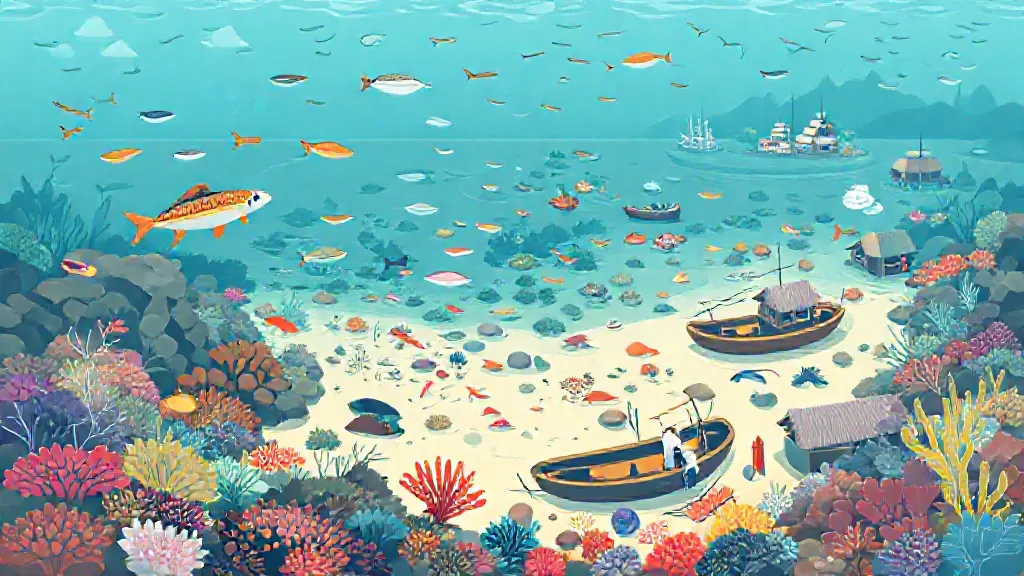Marine reserves are designated areas in the ocean where human activity is restricted to protect biodiversity and promote the recovery of marine ecosystems. While the establishment of these reserves is a critical step in mitigating the impacts of overfishing, pollution, and climate change, several challenges complicate their effective protection and management. This article explores the multifaceted challenges faced by marine reserves, offering insight into the complexities of marine conservation.
The Impact of Illegal Fishing on Marine Reserves
One of the most significant challenges in protecting marine reserves is illegal fishing. Despite regulations, many fishers continue to exploit these protected areas, driven by economic necessity or lack of enforcement. The presence of illegal fishing not only undermines conservation efforts but also threatens the livelihoods of local communities that rely on sustainable fishing practices.
For example, in the Mediterranean Sea, illegal fishing has been reported to account for up to 30% of the total catch, severely impacting fish populations and marine biodiversity.
Enforcement Difficulties in Remote Areas
Enforcing regulations in marine reserves can be particularly challenging, especially in remote locations. The vastness of ocean areas often makes it difficult for authorities to monitor and patrol effectively.
This lack of oversight can lead to increased illegal activities, including poaching and habitat destruction. For instance, in the Coral Triangle, which is home to some of the world's most diverse marine ecosystems, enforcement resources are limited, making it challenging to protect these vital areas from illegal exploitation.
Climate Change: A Growing Threat
Climate change poses a significant threat to marine reserves, affecting ocean temperatures, sea levels, and the health of marine ecosystems.
As temperatures rise, coral reefs—critical habitats for numerous marine species—are experiencing bleaching events, leading to widespread mortality. This phenomenon not only impacts biodiversity but also the communities that depend on these ecosystems for food and income. The challenges posed by climate change require adaptive management strategies that can respond to rapidly changing conditions.
Conflicts with Local Communities
The establishment of marine reserves can sometimes lead to conflicts with local communities, particularly if their traditional fishing grounds are included in protected areas. These conflicts can arise from a lack of consultation and involvement of local stakeholders in the decision-making process. For example, in parts of Southeast Asia, the creation of marine protected areas has led to tensions between conservationists and local fishers, who feel their livelihoods are threatened.
Building trust and ensuring community participation is crucial for the success of marine conservation efforts.
Funding and Resource Limitations
Effective management of marine reserves requires adequate funding and resources, which are often lacking. Many marine conservation initiatives rely on grants and donations, leading to inconsistent funding streams.
Without stable financial support, it becomes challenging to implement monitoring programs, engage with local communities, and conduct research necessary for effective management. The Global Environment Facility and other organizations work to provide funding, but the demand often exceeds the available resources.
Balancing Economic Interests and Conservation
Another challenge is balancing economic interests with conservation goals.
Coastal regions often depend on tourism, fishing, and other industries that can conflict with the objectives of marine reserves. Sustainable tourism practices can provide economic benefits while protecting marine ecosystems, but this requires careful planning and management. For instance, the Galápagos Islands have implemented a successful model of ecotourism that supports conservation while benefiting local economies, demonstrating that economic and conservation goals can align.
Scientific Research and Data Gaps
The effectiveness of marine reserves is often hampered by a lack of scientific research and data. Understanding the ecological dynamics of marine ecosystems is crucial for developing effective management strategies. However, many marine areas remain under-researched, leading to gaps in knowledge that hinder conservation efforts.
Collaborative research initiatives involving local communities, governments, and scientific institutions can help bridge these gaps and enhance the understanding of marine ecosystems.
The Role of Policy and Governance
Finally, the governance frameworks surrounding marine reserves play a critical role in their protection. Effective policies must be established to ensure that marine reserves are not only created but also managed sustainably.
This includes establishing clear regulations, monitoring compliance, and involving stakeholders in decision-making processes. International agreements, such as the Convention on Biological Diversity, provide a framework for marine conservation, but national and local governments must translate these commitments into actionable policies.
In conclusion, while marine reserves are essential for protecting marine biodiversity and supporting sustainable fisheries, they face numerous challenges that require comprehensive and adaptive management strategies.
Addressing illegal fishing, enhancing enforcement, engaging local communities, securing funding, balancing economic interests, and fostering scientific research are all critical components in the effective protection of marine reserves. By overcoming these challenges, we can ensure the long-term health of our oceans and the communities that depend on them.
